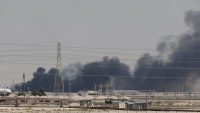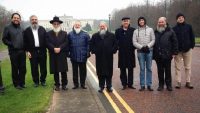![The Dome of the Rock is seen in the background as a Palestinian woman prays on the compound known to Muslims as al-Haram al-Sharif and to Jews as Temple Mount [Ammar Awad/Reuters]](https://www.almendron.com/tribuna/wp-content/uploads/2020/03/the-trump-plan-threatens-the-status-quo-at-al-haram-al-sharif-200x113.jpg)
The Trump plan threatens the status quo at al-Haram al-Sharif
Apart from its many other faults and its overall one-sidedness, and despite its authors' claims to the contrary, the US plan for Israel-Palestine, unveiled at the end of January, proposes perilous changes to the historical status quo at Jerusalem's Holy Esplanade.
The 14-hectare (35-acre) compound, known to Jews as Temple Mount and to Muslims as al-Haram al-Sharif, is Judaism's holiest site and Islam's third-most sacred after Mecca and Medina. The contested site, which is home to both the Dome of the Rock and Al-Aqsa Mosque, is currently supervised by Jordan's Islamic Waqf according to an unwritten Ottoman-era arrangement. Per the arrangement, Muslims are allowed to pray at the site, while non-Muslims are only allowed entry as tourists.… Seguir leyendo »










